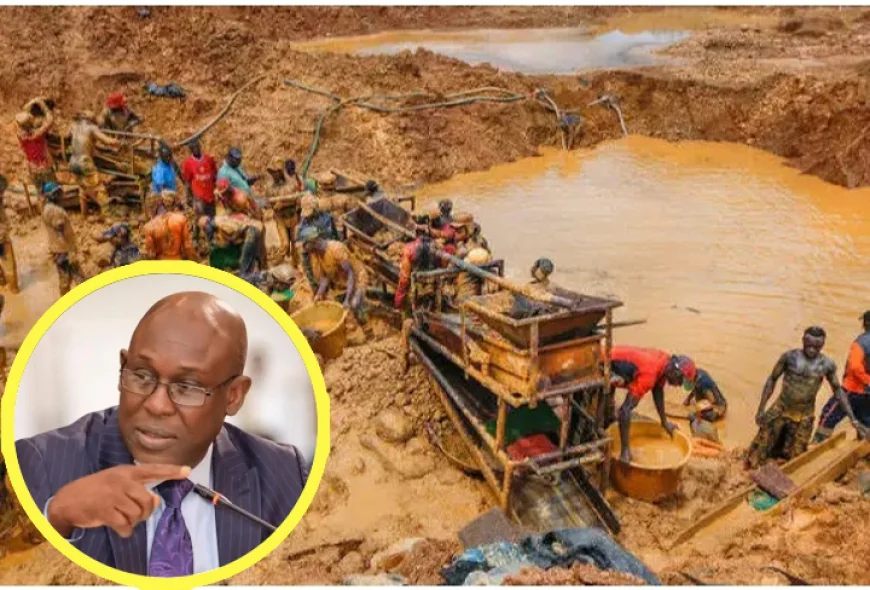‘No political will to fight galamsey’ - Kofi Bentil
Politics Shields Galamsey Kingpins While Miners Are Scapegoated - IMANI Veep spews

Vice President of IMANI Africa, Kofi Bentil, has delivered a stinging critique of Ghana’s approach to illegal small-scale mining, popularly known as galamsey, insisting that entrenched political interests are obstructing real progress.
Speaking on TV3’s " Key Points" weekend political talk show, the private legal practitioner argued that successive governments have relied on rhetoric rather than commitment, leaving the country unable to address one of its most pressing environmental and governance challenges.
“We will not solve galamsey because we are not serious about solving it. There is no political will to solve, only political rhetoric,” Bentil stated.
He maintained that Ghana’s security forces, particularly the military, could curb the menace if given free rein, but political interference has blunted their efforts. According to him, leaders often benefit more from sustaining the problem than resolving it, creating perverse incentives that allow galamsey to thrive.
Bentil further noted that while “galamsey kingpins” remain protected by political connections, ordinary miners are scapegoated in high-profile raids. Declaring security zones in mining areas and empowering security forces without political interference, he suggested, would be a decisive first step toward tackling the crisis.
His comments come at a time when Ghana’s regulatory framework is under review, with L.I. 2462 now set for repeal and new guidelines promised. Yet doubts linger over whether policy changes will translate into effective action.
For Bentil, the fight against illegal mining is ultimately a test of leadership and integrity. “What happens when political rhetoric replaces genuine commitment?” he asked, warning that without alignment between political power and political will, entrenched interests will continue to dominate.
Illegal mining remains a major contributor to deforestation, water pollution, and land degradation across Ghana. Despite years of pledges to end galamsey, the practice continues to damage communities and threaten long-term national development.


